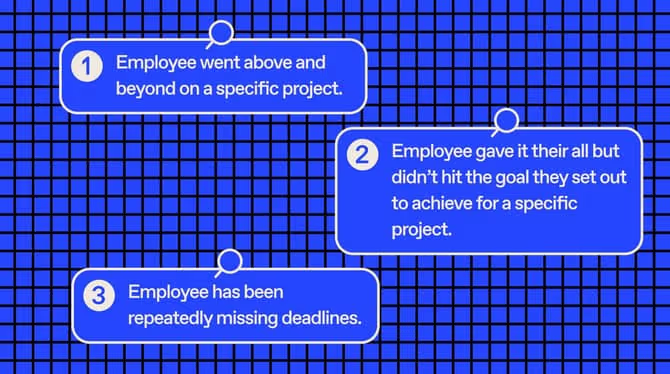Hey, managers! Here’s how to improve your interpersonal skills

From flawed to flawless: 5 steps to leading distributed teams

Which interpersonal skills are most highly valued by workplace employers? You might be surprised to learn that communication and interpersonal skills rank at the top of the list.
Despite their importance, Harvard Business Review reports that:
2/3 of managers are uncomfortable communicating with employees.
It’s not always easy to know how to approach conflict, communicate change, or provide negative feedback. And you might not think you need to learn how to improve your interpersonal skills so long as the job gets done, but the truth is that at the base of performing teams are solid relationships.
Good news! These interpersonal skills are identifiable and learnable. With a little practice, you can get better at key management skills such as active listening, communicating, building relationships with employees and offering vital feedback.
Why interpersonal skills are essential for modern managers?
Interpersonal skills are the “soft skills” that make it possible to work with and lead others. These are sometimes referred to as social skills, people skills, or even life skills, because they apply to all facets of your life, not just the workplace. They include skills like effective communication, empathy, self-awareness, conflict resolution, and so on. All skills that facilitate better human interactions. If you want to get the best performance out of your team, you need to know how to successfully manage relationships.
What instances do managers need to apply interpersonal skills?
- Actively listening to employees during 1-on-1s
- When an employee is underperforming and you need to address the issue
- When you need to resolve a conflict between two employees.
- Giving constructive feedback aimed at helping an employee develop
- Nurturing positive team dynamics, relationships, and collaboration
- Communicating clear individual and team expectations that resonate
The first step to better interpersonal skills is being aware of the critical or moments in which you need to apply them on the job. Whether it be high-stakes conversations or knowing how to mobilize your team through change. Build the reflex of taking a moment to think before communicating when it comes to moments and interactions that matter most.
Top 6 interpersonal skills for managers to hone in on
Almost 100 years ago, Dale Carnegie advised readers that they could “win friends and influence people” by learning to be a better communicator. While that basic philosophy still remains in place, here are six examples of specific interpersonal skills you need to succeed as a manager.
1. Effective communication skills
Effective interpersonal communication heads the list of valuable interpersonal skills. It consists of both listening and speaking effectively. Being a good listener means that you are able to receive and understand the speaker’s intent. You listen for words, inflection, tone, and even facial expressions to make sure you completely understand. If the intent is not clear, then you ask clarifying questions.
Did you know? 85% of Officevibe users are satisfied with how frequently they communicate with their managers.
The other side of the communication equation is speaking, or the ability to clearly transmit information. As a manager, you need to be clear when sharing expectations or communicating change. Look your listener in the eye, convey your point with clear words, eliminate jargon, and outline actionable items.
💡 Tip To become a better listener, focus attentively on what your employee is saying and not on what you want to say. Be present, study their body language, and then summarize what you heard to demonstrate that you were listening.
2. Conflict-resolution
It can be difficult to communicate effectively and provide clarity when conflict arises or when tempers are flaring. These can be trying situations but mediating conflict and navigating difficult conversations successfully are the cornerstones of growth and development on your team. Without them, teams will only tiptoe around success.
Managers need to model how to approach difficult conversations around conflict so that employees can have them amongst each other as well. Being able to challenge one another and discuss the elephant in the room respectfully are must-haves for better team performance.
This interpersonal skill requires that you be open-minded to alternate perspectives, empathetic, and as mentioned in point one above, able to listen as much as you speak.
Basic tips for having difficult conversations:
- Both parties should establish talking points ahead of time.
- Focus on specific facts and behaviors rather than perceptions and feelings.
- Aim for a common understanding of both sides, not winning an argument.
- Be solution-oriented and work together for the benefit of all participants.
3. Self-awareness
This is at the base of strong emotional intelligence. Before you can seek to understand what motivates the people around you, you need to understand yourself.
This clarity over what drives and affects you will allow you to have control over your emotions. It also allows you to self-reflect, and therefore improve. Leaders with self-awareness are able to admit when they are wrong and flag their own blindspots. It is a trait of true leaders. Those with high self-awareness also possess the ability to better understand others, which, as a manager, is an interpersonal skill that drives connection.
💡 Tip: When it comes to your own emotions, you can improve self-awareness by intentionally noting events that trigger certain disruptive emotions. Once you understand, you can learn to regulate your emotional responses and focus on logic-based solutions.
4. Body language
Non-verbal communication is almost as important as verbal communication. You send out positive and negative signals through facial expressions, the way you sit, or how you use your hands. Sometimes, disinterested body language speaks much louder than your voice.
While we need to pay attention to the words we say, we also need to be mindful of how we express ourselves with nonverbal cues in order to ensure that our intended message and our perceived message match.
💡 Tip: In a remote context, pay attention to your posture and eye contact. Nod to demonstrate you have processed information, or smile to show engagement. Notice what you are doing when your employee is talking and ensure it reflects your attention. You may be listening but resting your head in your hand might show boredom, for example.
5. Empathy
Empathy is the ability to put yourself in someone else’s shoes. It doesn’t mean you have to agree with them, but being able to take on another perspective gives you a leg up when building relationships. Imagine seeing through your employees' eyes?
Empathy is a skill that allows you to break from your own perspectives and beliefs, which as a manager is essential when you have a time filled with unique individuals, expertise and points of view.
💡 Tips: If you are communicating with a conflicted employee, before reacting, try to remember when you were on that side of the desk. You might have been inexperienced or afraid, so it’s possible this person feels the same way. Give the team member a chance to express their feelings or ideas, and then provide input, without judgment.
6. Relationship management
Relationship management is one of the most important of your managerial interpersonal skills.
Did you know? 86% of employees using Officevibe trust their direct manager
Building and nurturing solid relationships with both your team and upper management requires that you intentionally build trust. This is done by taking time to get to know your colleagues as people, not just workers.
You’ll find that strong relationships can lead to improved collaboration, smoother conflict resolution, and a happier team overall. But, how can your track relationships? Officevibe offers a suite of tools for managers that help monitor and improve the quality of team relationships.

Use our anonymous feedback feature to learn the state of relationships on your team, and where you need to put efforts to improve them.
Remember that while guiding your team to reach goals is part of your job, the other part is putting your people skills to work to ensure collaboration, connection, and chemistry. As you learn how to improve your interpersonal skills, you’ll be able to use your hard skills to more effectively guide your team to success.
Give HR and managers the clarity, confidence, and connection to lead better every day.












